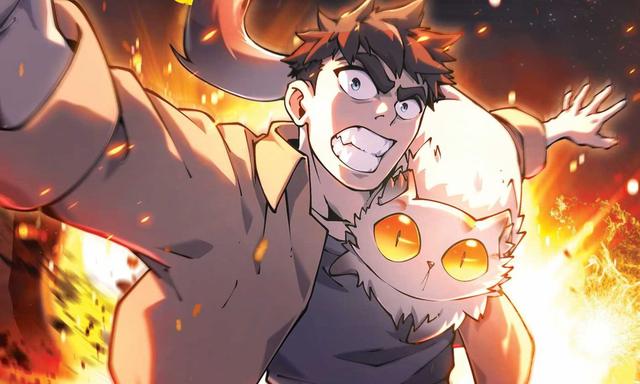If you click on a link and make a purchase we may receive a small commission. Read our editorial policy.
The anime industry is growing faster than the number of Japanese people willing to animate, opening the door to foreigners more than ever before says Leviathan director
Christophe Ferreira, director of Leviathan for Studio Orange, has seen the shift in the anime industry first hand.

Popverse's top stories
- From John Carter to Anne McCaffery and beyond: 5 early romantasy books that shaped the genre
- Marvel's Scarlet Witch Elizabeth Olsen is coming to C2E2 2026!
- Members only: Ask Ming-Na Wen, Critical Role, Gail Simone, Karl Urban, Chris Claremont, Denys Cowan, and more your questions as part of ECCC x Popverse member exclusive!
With the explosive growth in the anime industry over the past decade or so, it is easy to see why there is a greater demand for animators at studios than ever before. However, more and more, Japanese studios are looking further afield for their next batch of talent. As the director of Netflix’s Leviathan tells us, this is both because of a rising demand and a lack of supply.
It is no secret that the landscape of the anime industry has changed massively over the years. There are now far more international artists working in anime than ever before, something that Christophe Ferreira, the director of Leviathan, has certainly noticed. And it would be something on his mind, considering he is a French director who has been working in the animation industry for over 20 years.
"Back in the early 2000s, Japanese studios weren’t particularly looking to work with foreigners,” he told us when we interviewed him ahead of Leviathan’s release on Netflix this month. “The local industry, while already important, was smaller than it is today. There were very few non-Japanese people in the field back then. But things have changed a lot. In recent years, there’s been a noticeable wave of foreign artists coming to Japan to work in various roles across the animation pipeline. Thanks to the internet, many others are now contributing remotely from abroad.”
What changed? Demand has skyrocketed, but the local talent hasn’t been willing to match it.
“I think the main reason for this shift, beyond a few exceptional cases, is the growing demand for content. The number of anime productions has exploded, but the number of skilled animators in Japan hasn’t increased at the same pace," Ferriera tells me. "In fact, fewer and fewer young Japanese people seem to dream of becoming animators, due to the difficulty and intensity of the job. So, the industry has started opening up to international talent – out of both necessity and opportunity. Working on Leviathan has been a great example of this evolution – Studio Orange stepping up to the occasion with their remarkable animation expertise, while Qubic played a crucial role by bridging Western and Japanese perspectives, helping create a project that truly reflects the direction anime is heading.”
In this way, Leviathan is the perfect example of how the modern anime industry looks; a series from a Japanese animation studio, helmed by a French director and adapting the works of an American novelist. The full series of Leviathan is out now on Netflix.
Want to know what's coming up next in pop culture? Check out Popverse's guides to:
Follow Popverse for upcoming event coverage and news
Find out how we conduct our review by reading our review policy
Let Popverse be your tour guide through the wilderness of pop culture
Sign in and let us help you find your new favorite thing.















Comments
Want to join the discussion? Please activate your account first.
Visit Reedpop ID if you need to resend the confirmation email.